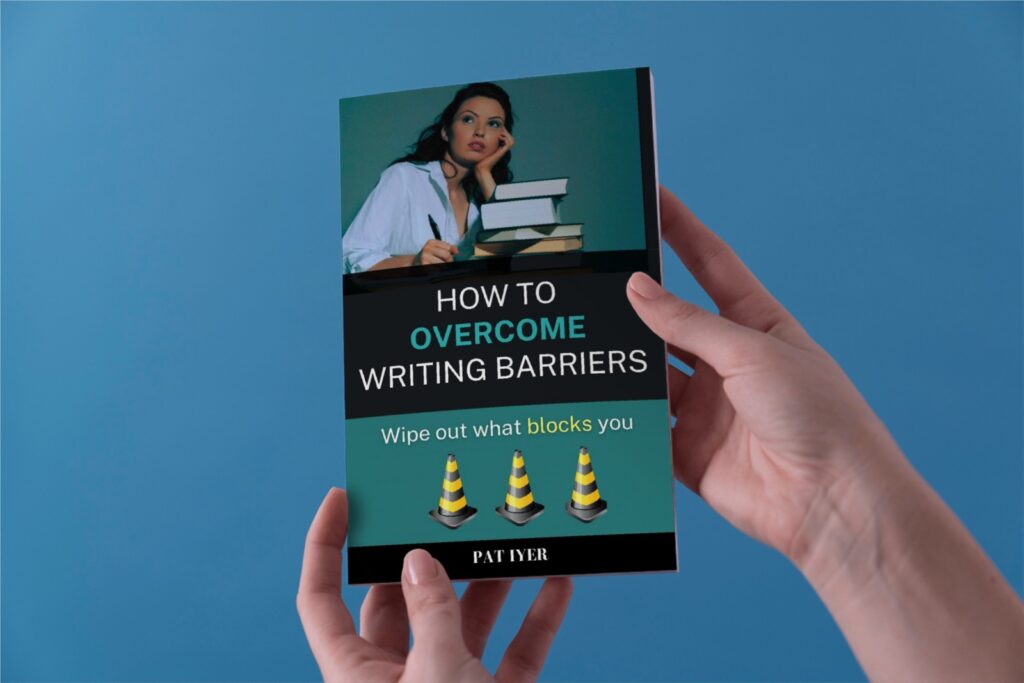Are you trying to write something at home? Feel stuck? Are you frustrated from the stresses of the day?
Try this fast and free method.
Unless you work at home, the atmosphere and demands of work versus home are very different. It can be a challenge to make a smooth transition. Some people have a drink to relax. Others watch the news, but neither of these methods addresses the probability that too often when we come home from work, we bring remaining problems and issues with us.
And a lot you see on the news is anything but relaxing!

Consider this simple and short writing exercise instead. It serves several purposes.
- You can give yourself the freedom to say anything you want.
- You can read over what you wrote later on and often see that the issues that troubled you either resolved themselves or weren’t as big as you’d thought.
- This no-pressure method can ease you into writing.
How Free Writing Works
- You can either write by hand or in a text file. Do whichever comes most naturally to you.
- Set a time limit for how long you will write. I recommend five minutes. If you find that you want to write longer, do so.
- This is free writing, which means to write freely. Don’t check for errors. Don’t try to write well.
- Write without censoring yourself. No one will ever see what you write.
- Think of this as unloading. The thoughts that are racing around in your head need to come out of that crowded space and land on the page (physical or electronic).
- Don’t judge yourself for the thoughts that emerge. This is crucial.
Why Free Writing Has Value
I referred to this process as unloading. This example may make that more clear.
You’ve been sitting at a desk all day, and your back hurts. You might start off writing, “Stupid back. Why do you have to hurt so much?”
Physical pain often reflects mental/emotional issues. You might ask yourself questions.
- Who is a pain in my back?
- Who do I feel has been kicking me?
- Am I wearing a sign that says ‘Kick me’?”
Patience is Helpful
The questions and their answers may not initially come quickly. Once you’ve practiced the five-minute writing exercise for a while, you’ll find that the channel to understanding opens. The more you ask the questions, the more you’re telling yourself, “I want to know; I really do.”
Sometimes it may help to, instead of saying,” my stupid back,” say “my stupid life.” Then you decide what’s stupid about your life. Reminder: Do not judge yourself for your thoughts. Everyone who ever had a thought has had a lot of stupid ones.
Beneath the Garbage Lies Creativity
Although you may not be planning to write a novel or a self-help book or a memoir, five minutes of free writing can jump-start your ability to work on the project you’ve chosen. This fast exercise, by helping you to give up judgment about your thoughts, will allow a new level of creativity to develop in a way that’s analogous to brainstorming. Thus, it can also enhance your ability to write for your job or business.
Enroll Your Family in Your Program
 Let them know your new plan. Explain that your engagement in five minutes of free writing will make you a better and happier parent and spouse. Take it a step further and encourage them to try the five-minute writing, too.
Let them know your new plan. Explain that your engagement in five minutes of free writing will make you a better and happier parent and spouse. Take it a step further and encourage them to try the five-minute writing, too.
Once you’ve unloaded, then you can relax with your family and turn home time into a time of refreshment and renewal.
Pat Iyer Is a ghostwriter and editor who has written or edited over 60 books. She is the author of Overcome Writing Barriers: How to Wipe Out What Blocks You.
